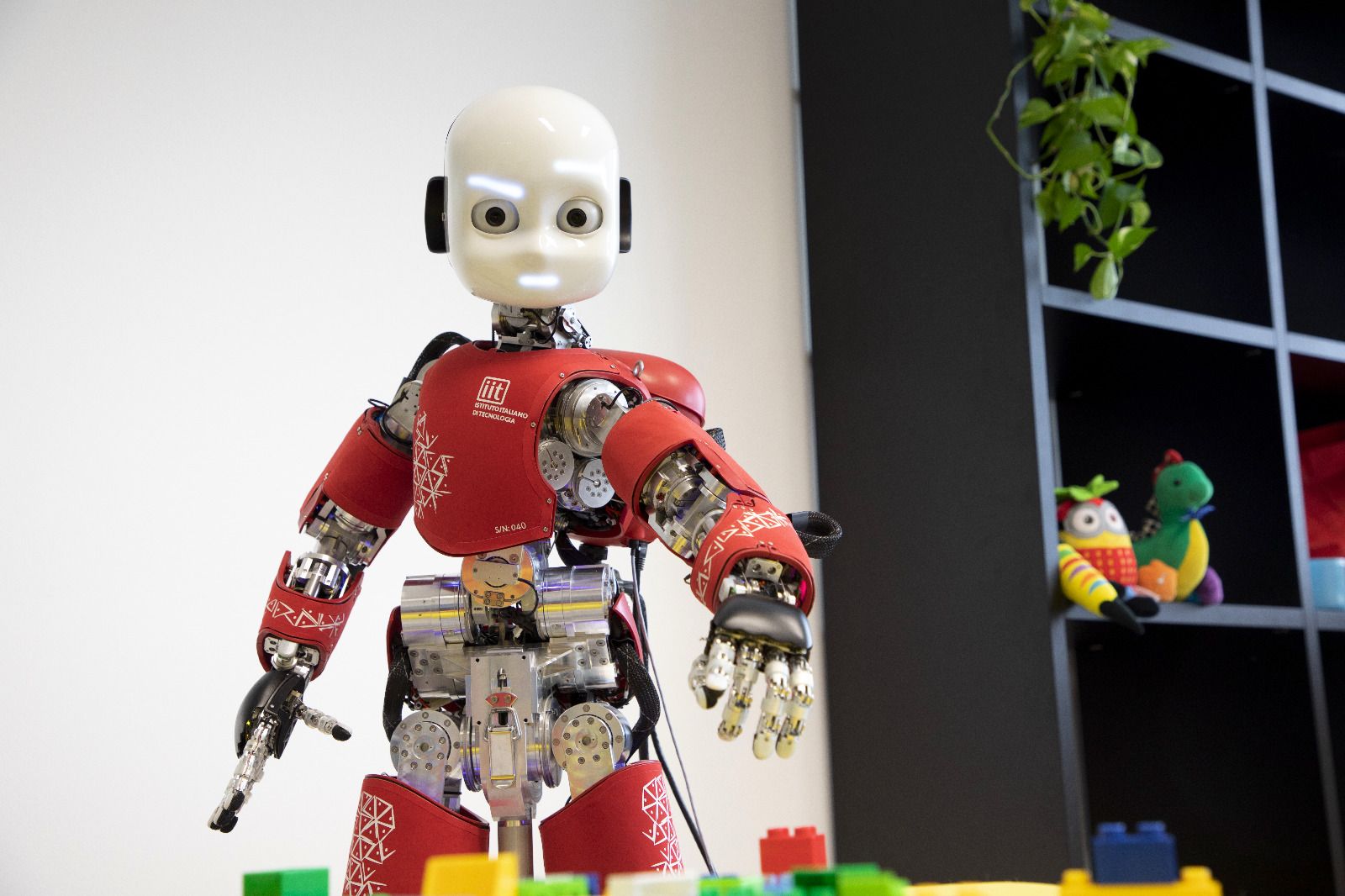Cognitive Robotics in human-robot interaction

Number of hours: 24 hours
Credits: 8 CFU
AIMS AND CONTENT
The participants will learn the key aspects regulating the interaction between human and robots, and will have an overview of good features and limitations of currently available platforms for HRI. Students will learn how to conduct an HRI study and which metrics are appropriate to characterize the interaction.
Participants will be provided with an overview of some computer vision useful to make robots able to understand the nonverbal behaviors of the human partner (e.g. facial expressions and body movements) and other perceptual models of cognitive robotics. Further the participants will be provided with an overview on
how actions can close the action-perception loop with human partners and how these models integrate in broader cognitive architectures for HRI. The survey across cognitive models of perception and action will give to the participants the opportunity to successfully design new behaviors for interacting robots.
Syllabus/Content
• Taxonomy and Open Challenges for HRI
• The importance of Robot Shape, Motion and Cognition
• Metrics and Experimental Design
• Computer Vision for HRI
• Models of Robot Perception and Action in HRI
• Software Development of perception and action models in HRI
WHO
Teacher(s):
Francesco Rea,
Ana Tanevska,
Joshua Zonca
Alessandra Sciutti
HOW
Teaching Methods:
The course will be structured as a series of frontal lessons progressing from an introduction to the basis of
HRI to the specific description of the principal methodologies supporting the analysis and the realization of
effective HRI. It will be proposed to the students to proactively participate as groups in short exercise and
practical sessions or in group discussions addressing the topics of the lectures.
Exam Description:
At the end of the course the students will be involved in designing either an HRI experiment or practical solutions for specific HRI case studies. The participants will work together in small groups of 3/4 persons and will have to leverage on the methods learned during the previous lessons in order to provide an effective solution to the proposed HRI problem.
Assessment Methods:
The teachers will assess the effectiveness and appropriateness of the HRI solution or HRI experiment designed during the exam. The assessment will take in consideration how the students selected and implemented the techniques learnt during the course.
WHERE AND WHEN
Lesson Location
The lessons will take place at the Italian Institute of Technology, Center for Human Technologies in Erzelli and at the same time the students will be provided with the possibility to attend from remote.
Office hours for student
Office time is flexible and the student can agree with the teacher an appointment by sending an email either to
Deatiled Schedule (and corresponding Teams links)
23/05 – Giacconi Room + VICON room (Erzelli), 9.30-12.30
24/05 – Giacconi Room + VICON room (Erzelli), 9.30-12.30
25/05 - Fibonacci+Pitagora, 9.30-12.30
26/05 – Gallileo Room (Erzelli), 9.30 - 12.30
27/05 - Fibonacci+Pitagora Room (Erzelli), 14.00-17.00
30/05 - Giacconi Room + VICON room (Erzelli), 9.30-12.30
31/05 - Giacconi Room + VICON room (Erzelli), 9.30-12.30
01/06 - Fibonacci+Pitagora Room (Erzelli), 9.30-12.30